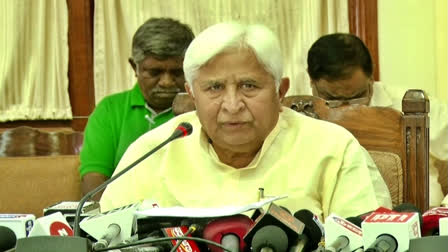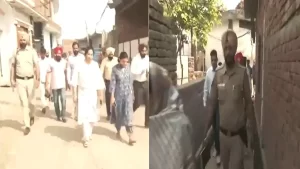
The Karnataka government has officially withdrawn the blanket permission previously granted to the Central Bureau of Investigation (CBI) to investigate cases within the state. This move restricts the CBI from having automatic authority over state cases, as confirmed by Karnataka Law Minister H.K. Patil.
Speaking to the media, Patil stated, “We will consider granting separate permissions to the CBI for individual cases. However, moving forward, they will no longer have the freedom to investigate all cases indiscriminately.” This statement signals a shift in how the state intends to regulate the investigative powers of the central agency within its jurisdiction.
In addition to the decision concerning the CBI, Patil revealed another significant measure aimed at streamlining communication between the state government and the Governor’s office. The state cabinet has mandated that no information will be sent to the Governor without first receiving cabinet approval.
Patil elaborated on the matter, stating, “No detailed information will reach the Governor unless it is approved by the Cabinet. Only after our consent will the Chief Secretary be permitted to send written information to the Governor.” This decision appears to address concerns over the Governor’s increasing correspondence regarding complaints against the state government.
Governor Thaawarchand Gehlot has reportedly been sending letters inquiring about complaints lodged against the government, seeking clarifications. This ongoing correspondence has raised concerns, not only for Chief Secretary Shalini Rajneesh but also within the cabinet. The decision to tighten this protocol comes in the wake of mounting concerns over the Governor’s role and the frequency of his inquiries.
Patil did not shy away from expressing his displeasure with what he perceives as the politicization of central agencies, including the CBI. “Over the past few months, we’ve observed a clear bias in how central government agencies, such as the CBI, are being utilized,” he remarked. He further accused the Bharatiya Janata Party (BJP) of using the Governor’s office for political purposes, stating, “Additionally, the BJP is exploiting the Raj Bhavan for its own interests.”
The minister’s remarks reflect the broader tensions between the state government and the BJP, which governs at the national level. The state’s move to limit the CBI’s role and streamline communication with the Governor’s office can be seen as a reaction to these tensions.
Patil took the opportunity to clarify that the decision to withdraw blanket CBI permission is not related to the ongoing MUDA (Mysore Urban Development Authority) land scam case. Speculation had been rife that the move was an attempt to shield Karnataka Chief Minister Siddaramaiah from investigation, but Patil strongly refuted these claims.
He explained, “This decision has nothing to do with the MUDA land scam case. The court has already ordered a Lokayukta inquiry into the allegations against the Chief Minister. Therefore, this step should not be linked to the Chief Minister or seen as an attempt to shield him from scrutiny.”
The Mysore Lokayukta police were recently granted permission by the court to investigate Chief Minister Siddaramaiah in connection with the alleged land scam. The allegations pertain to irregularities in land allocations under the Mysore Urban Development Authority.
The Karnataka government’s decision to revoke the CBI’s general investigative authority and tighten communication protocols with the Governor’s office signals an assertive stance in preserving the state’s autonomy. At the same time, the move highlights the ongoing political friction between the state government and the BJP-led central administration. While the government insists that the decision is unrelated to specific cases, particularly the MUDA land scam, the timing of these actions has drawn attention to the complex dynamics between state and central authorities in Karnataka.






